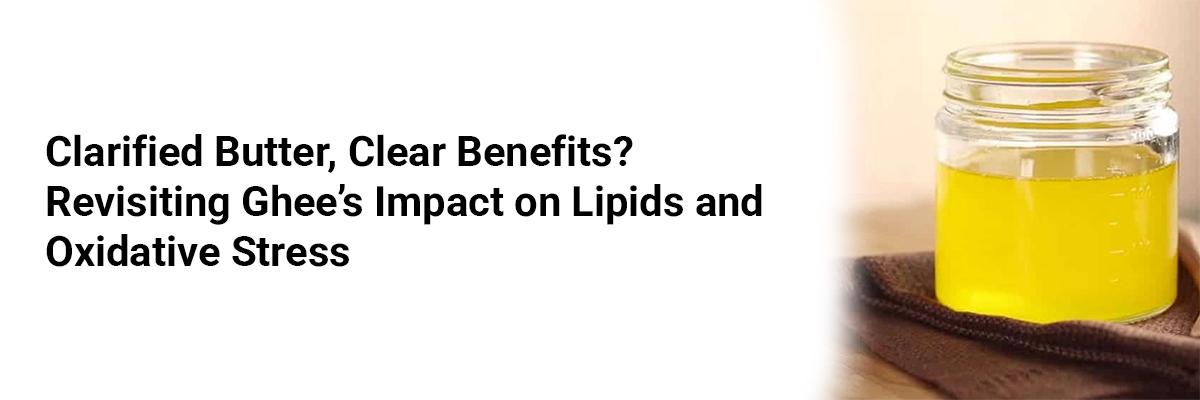
Clarified Butter, Clear Benefits? Revisiting Ghees Impact on Lipids and Oxidative Stress
Despite longstanding concerns over ghee's saturated fat content, recent experimental evidence reaffirms its favorable profile when consumed in moderation. A study published in AYU journal investigated the effects of 10% dietary ghee on serum lipids and hepatic oxidative stress in Fischer inbred rats—animals genetically predisposed to the disease.1 The results provide valuable insights into the safety and therapeutic potential of ghee in cardiovascular health management.
In this controlled experiment, rats were fed either standard chow or chow supplemented with 10% ghee for a period of four weeks. Notably, while serum triglyceride levels rose significantly in the ghee group, there was no significant change in total cholesterol levels. More importantly, there were no increases in liver microsomal lipid peroxidation or lipid peroxide levels, indicating that ghee did not promote oxidative stress at the cellular level—an essential mechanism underlying cardiovascular and degenerative diseases.
Previous work has shown that ghee-fed animals exhibit a dose-dependent reduction in Low-Density Lipoprotein (LDL), Very Low-Density Lipoprotein (VLDL), triglycerides, and liver lipids, especially in outbred rat strains. Additionally, both native and heated ghee (which contains cholesterol oxidation products) led to decreased lipid peroxidation, contrary to concerns about oxidized cholesterol in cooked ghee.
Mechanistic studies further suggest that ghee increases bile secretion and facilitates cholesterol excretion without affecting hepatic HMG-CoA reductase activity—unlike synthetic statins. This mechanism may underlie its hypocholesterolemic effect. Also noteworthy is the influence of ghee on inflammation: supplementation led to decreased levels of arachidonic acid and leukotrienes, suggesting a role in downregulating inflammatory cascades implicated in psoriasis and cardiovascular disease.
Importantly, a rural Indian population consuming higher ghee levels was found to have lower coronary heart disease prevalence, contrasting with urban populations exposed to trans-fat-laden vanaspati (vegetable ghee). The study highlights the importance of distinguishing pure ghee from adulterated products when assessing cardiovascular risk.
In summary, moderate consumption of unadulterated ghee does not elevate cholesterol or oxidative damage in genetically susceptible models and may offer lipid-lowering and anti-inflammatory benefits. These findings support Ayurveda's age-old endorsement of ghee and invite reconsideration of its role in modern diets.













Please login to comment on this article